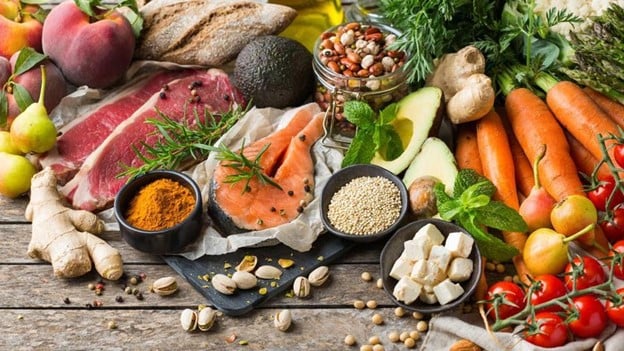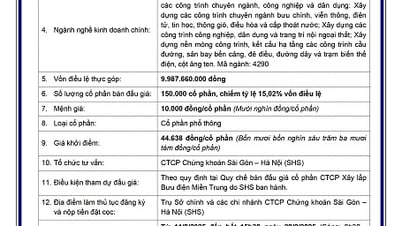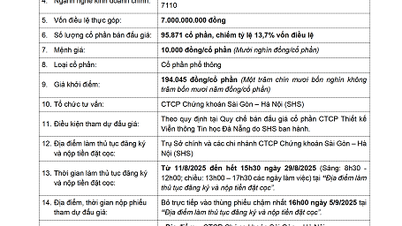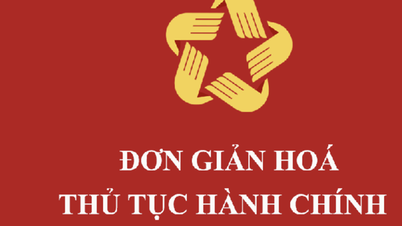Older adults are less likely to consume nutrient-rich foods, and their ability to absorb and metabolize important vitamins and minerals also declines.
According to statistics, about 85% of people over 65 years old have at least one chronic disease. Research shows that proper nutrition can help support healthy aging and reduce the risk of chronic diseases.
Older adults who eat a balanced, nutritious diet tend to live longer and have a lower risk of chronic diseases, such as diabetes, heart disease, Alzheimer's disease, certain cancers, and more.
1. Essential vitamins and minerals
Older adults typically need vitamins and minerals such as calcium, potassium, folate, and vitamin D.

Vitamins and minerals are abundant in natural foods.
1.1. Calcium
As we age, our bodies often absorb less calcium from our diet, which can cause our bones to become weaker and more susceptible to fractures. Calcium deficiency has also been linked to irregular heartbeats, seizures, and numbness and tingling in the fingers.
You should use dairy products such as yogurt, milk, cheese, calcium-fortified cereals, sardines, green leafy vegetables (broccoli and kale)...
Women over 51 are recommended to consume at least 1,200 milligrams of calcium per day. Men aged 51 to 70 consume 1,000 milligrams and those aged 71 and older consume 1,200 milligrams.
1.2. Potassium
Potassium is one of the most important minerals for good health. The body needs potassium for muscle contraction and normal brain, heart, and nerve function. Older adults who eat a diet rich in potassium tend to have better health and may have a lower risk of osteoporosis, kidney stones, high blood pressure, and stroke. But as we age, kidney function declines, which can affect potassium levels in the body.
Eat foods rich in potassium such as dried apricots, bananas, potatoes and lentils. However, be aware that consuming too much potassium can cause muscle weakness, nausea and irregular heartbeat.
Typically, the recommended dose of potassium is 4,700 mg/day. However, you should talk to your doctor to determine the appropriate amount of potassium.
1.3. Folic acid
Folic acid (folate) is essential for normal nervous system function at all ages. Folate may reduce the risk of depression, hearing loss, and cognitive function (including Alzheimer's disease).
Folate can be found in many foods: beef liver, spinach, broccoli, avocados, and some breakfast cereals... People over 51 should consume 400 mcg of folate per day.
1.4. Vitamin D
Dietary vitamin D deficiency has been linked to an increased risk of osteoporosis, cardiovascular disease, hypertension, and cognitive decline in older adults. Older adults are particularly vulnerable to vitamin D deficiency due to lack of exposure to sunlight, isolation, lack of mobility, concerns about sun exposure, etc.
You can choose foods rich in vitamin D such as salmon, sardines, eggs and milk.
People aged 51 to 70 should consume 600 international units (IU) of vitamin D per day. People over 71 need 800 IU/day.

Older adults should talk to their doctor before taking vitamin and mineral supplements.
In addition, older people also need more protein and fiber:
- Protein: Older adults often lose muscle mass and strength as they age. This can affect mobility and increase the risk of heart disease and diabetes.
Protein is essential for maintaining muscle mass, so older adults need to consume enough high-quality protein foods throughout the day.
Good sources of protein include: Lean meat, poultry, fish, eggs, tofu, beans, nuts and seeds. It is recommended that older adults consume at least 1.2 grams to 2 grams of protein per day for every kilogram of body weight.
- Fiber is not only important for gut health and metabolic function. Research shows that diets high in fiber are associated with better physical performance, increased longevity, improved cognitive function, and a reduced risk of cardiovascular disease.
Foods like whole wheat bread, broccoli, avocados, apples and berries… provide lots of fiber.
However, if you don't consume enough whole grains, fiber supplements can be used to promote healthy digestion.
Typically, women over 51 should consume at least 22 grams of fiber, and men of the same age should consume at least 28 grams of fiber per day.
2. Notes when supplementing vitamins and minerals
To get enough of these nutrients, the elderly need to maintain a balanced diet with a variety of nutritious foods, containing many vitamins and minerals that are good for health. It is necessary to choose whole foods, containing a mixture of carbohydrates, good quality fats, proteins, eat a variety of fruits and vegetables with different colors...
If your diet does not provide enough vitamins and minerals, you can talk to your doctor about taking supplements. Supplements must be taken in strict accordance with your doctor's instructions and directions to avoid potential dangers of these nutrients.
Dr. Nguyen Thi Diem Le
Source: https://giadinh.suckhoedoisong.vn/4-vitamins-and-khoang-chat-quan-trong-nhat-cho-nguoi-cao-tuoi-172241009092617523.htm






































































































Comment (0)